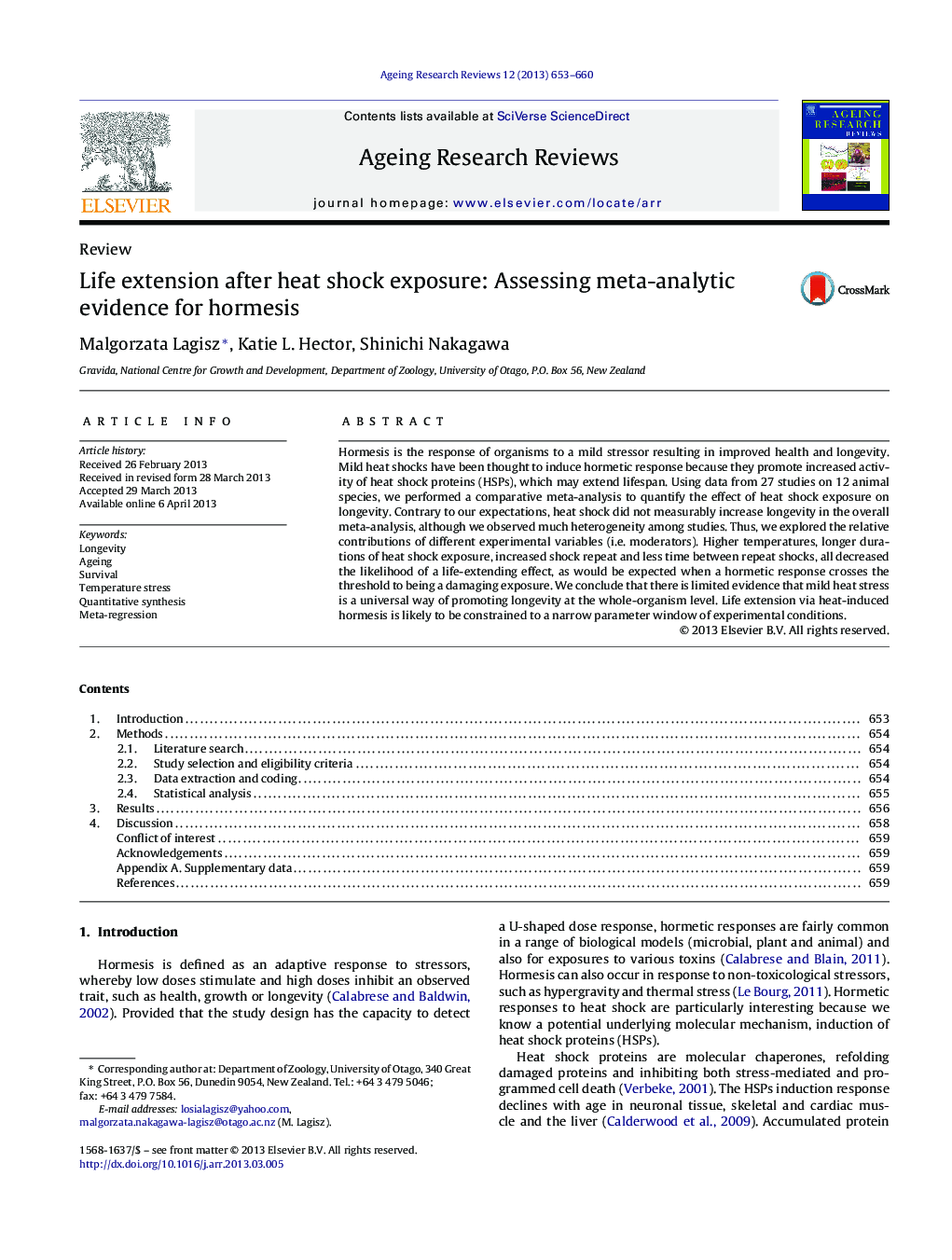| Article ID | Journal | Published Year | Pages | File Type |
|---|---|---|---|---|
| 1902352 | Ageing Research Reviews | 2013 | 8 Pages |
•First meta-analysis on heat-induced longevity hormesis.•Standardised data from 27 studies on 12 animal species were obtained.•Significant variation in the magnitude of effect exists among studies.•Heat shock temperature, duration, repeat number and recovery time are important.•Life-extension via heat-induced hormesis works only in a narrow parameter window.
Hormesis is the response of organisms to a mild stressor resulting in improved health and longevity. Mild heat shocks have been thought to induce hormetic response because they promote increased activity of heat shock proteins (HSPs), which may extend lifespan. Using data from 27 studies on 12 animal species, we performed a comparative meta-analysis to quantify the effect of heat shock exposure on longevity. Contrary to our expectations, heat shock did not measurably increase longevity in the overall meta-analysis, although we observed much heterogeneity among studies. Thus, we explored the relative contributions of different experimental variables (i.e. moderators). Higher temperatures, longer durations of heat shock exposure, increased shock repeat and less time between repeat shocks, all decreased the likelihood of a life-extending effect, as would be expected when a hormetic response crosses the threshold to being a damaging exposure. We conclude that there is limited evidence that mild heat stress is a universal way of promoting longevity at the whole-organism level. Life extension via heat-induced hormesis is likely to be constrained to a narrow parameter window of experimental conditions.
